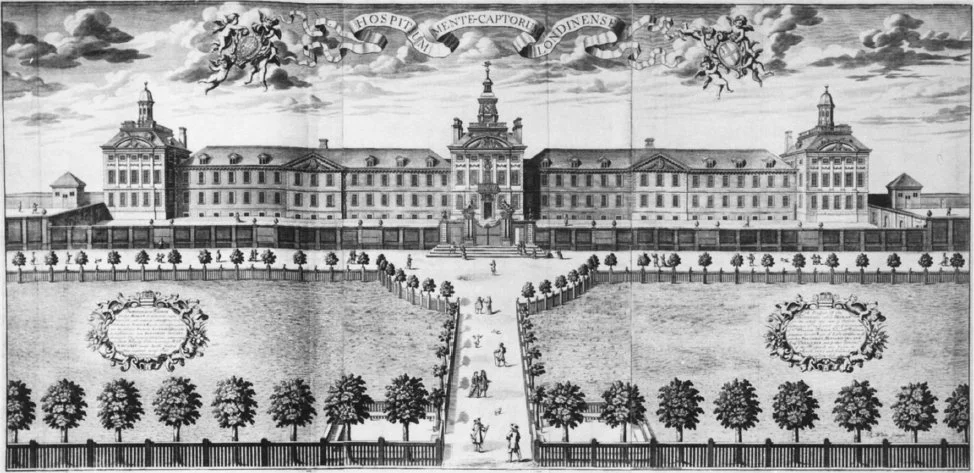Causation in stories
I am currently writing a play about James Tilly Matthews, to some the first documented case of Paranoid Schizophrenia, who was interred at Bethlem Hospital (popularly known as “Bedlam”), between 1797 and 1813. His story is wild.
Understanding its various social and geopolitical ramifications has seen me not only read a great stack of books across fiction and non-fiction (including a PhD thesis and political pamphlets written 250 years ago), it has also sent me, for the first time in my life, into archives; at the Wellcome Collection, Sir John Soane’s Museum and Bethlem itself, where I have been exploring hospital records from Matthews’ time there.
Bethlehem Royal Hospital, London, By Robert White c. 1676 / Wikimedia Commons
James Tilly Matthews’ brain fabricated connections between events, perhaps (some have posited) as a coping mechanism for highly traumatic events he is said to have experienced whilst working on a peace treaty with revolutionary France.
Whilst I obviously cannot directly compare my contemporary, mentally well, neurotypical experiences to that of a man whose diagnosis has only come hundreds of years after his death, it is my job as a playwright to at least reflect on ways we can relate to Matthews.
And are we not all in need of causality, and at times guilty of fabricating it, for the sake of mental survival?
“Of course it had to rain at my barbecue.”
Because the alternative -chaos- speaks only to one possibility: that meaning is relative, death is final, and Bank Holidays mostly disappointing.
And that is why our audience need the events of our fictional stories to not only cause one another, but to do so with irony. Because, as protagonists of our own stories, we ourselves do that every day, fabricating solipsistic causation from chaos.
To read more, and to be part of the conversation, join Script East Midlands’ very own Script Club.

